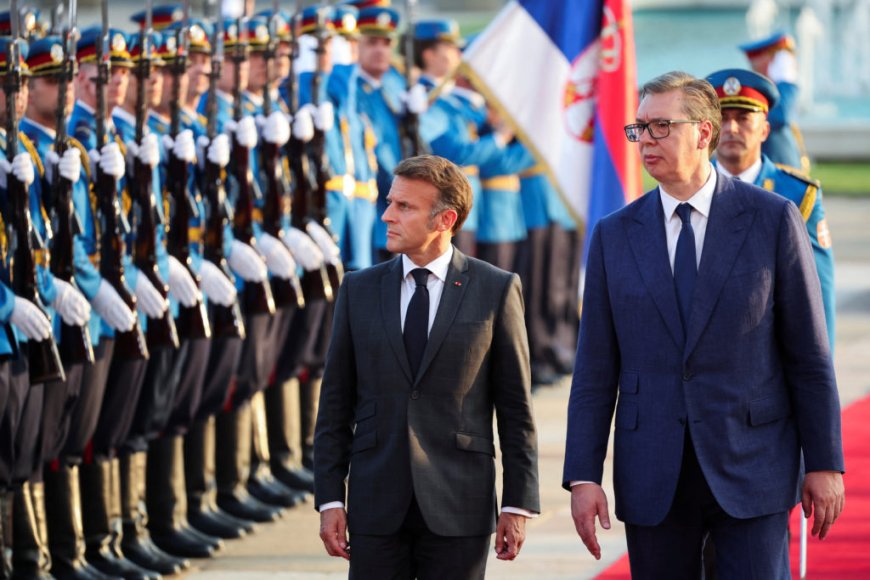Serbia Signs $3 Billion Deal for French Warplanes, Marking Strategic Pivot from Russia

In a significant move underscoring Serbia's shift in defense strategy, President Aleksandar Vučić announced on Thursday a $3 billion agreement to purchase 12 Rafale fighter jets from France. This deal represents a decisive pivot from Serbia’s historical reliance on Russian military equipment and signals a broader realignment towards the European Union.
The announcement was made during a joint press conference in Belgrade with French President Emmanuel Macron, who was on a two-day visit to Serbia as part of an ongoing initiative to deepen ties between Serbia and the EU. Macron hailed the agreement as "historic and important," emphasizing its role in bolstering Serbia’s strategic capabilities while also bringing the country closer to European integration.
“The European Union needs a strong and democratic Serbia at its side, and Serbia needs a strong, sovereign Europe to defend its interests,” Macron declared. “Serbia’s place is in the EU, and it has a role to play as a model for the entire region.”
The purchase of the Rafale jets, renowned for their versatility and advanced technology, is seen as a crucial step for Serbia in modernizing its military. Currently, Serbia’s air force relies heavily on aging Soviet-era MiG-29 fighters and older Yugoslav aircraft. The introduction of the Rafales will not only enhance Serbia’s defense capabilities but also symbolize a significant geopolitical shift.
This agreement comes at a time when Serbia is formally seeking European Union membership, although progress has been slow under Vučić's administration, particularly in the areas of rule of law and democratic reforms, which are essential for EU accession.
Geopolitical Implications and Concerns
The sale of advanced French military aircraft to Serbia, a traditional Russian ally, has raised eyebrows among Western observers. Given Serbia’s close ties with Moscow and its refusal to impose sanctions on Russia following the invasion of Ukraine, concerns have emerged regarding the potential sharing of sophisticated Rafale technology with Russia.
When questioned about these concerns, Macron assured that the deal includes "full guarantees like any defense agreement," although he did not provide specific details. Vučić, for his part, dismissed the concerns, asserting that Serbia’s acquisition of Western jets represents a new chapter in the country’s defense policy.
"For the first time in history, Serbia has Western jets," Vučić said. "You wish to have Serbia as a partner and then you voice suspicions? This is a big development for our military capabilities, and we are proud to join the Rafale club."
Strategic Context and Regional Dynamics
Serbia’s decision to acquire Rafale jets follows over two years of consideration, particularly after neighboring Croatia, a regional rival, purchased 12 used Rafale jets for approximately €1 billion ($1.1 billion). The move is likely to shift the balance of power in the Balkans, a region historically fraught with tension and competition.
Dassault Aviation, the French manufacturer of the Rafale, praised Serbia’s decision, stating that it "confirms Rafale’s operational superiority and its proven excellence in serving the sovereign interests of a nation."
This acquisition is seen as a strategic win for France, which is keen on expanding its influence in the Balkans as part of a broader EU strategy to counter Russian influence in the region. For Serbia, the deal marks a significant step in its ongoing efforts to modernize its military and align more closely with Western defense standards.
As Serbia navigates its path towards EU membership, this landmark deal is likely to be a critical factor in shaping its future geopolitical orientation, further distancing itself from its traditional alliances and moving closer to the European fold.













































